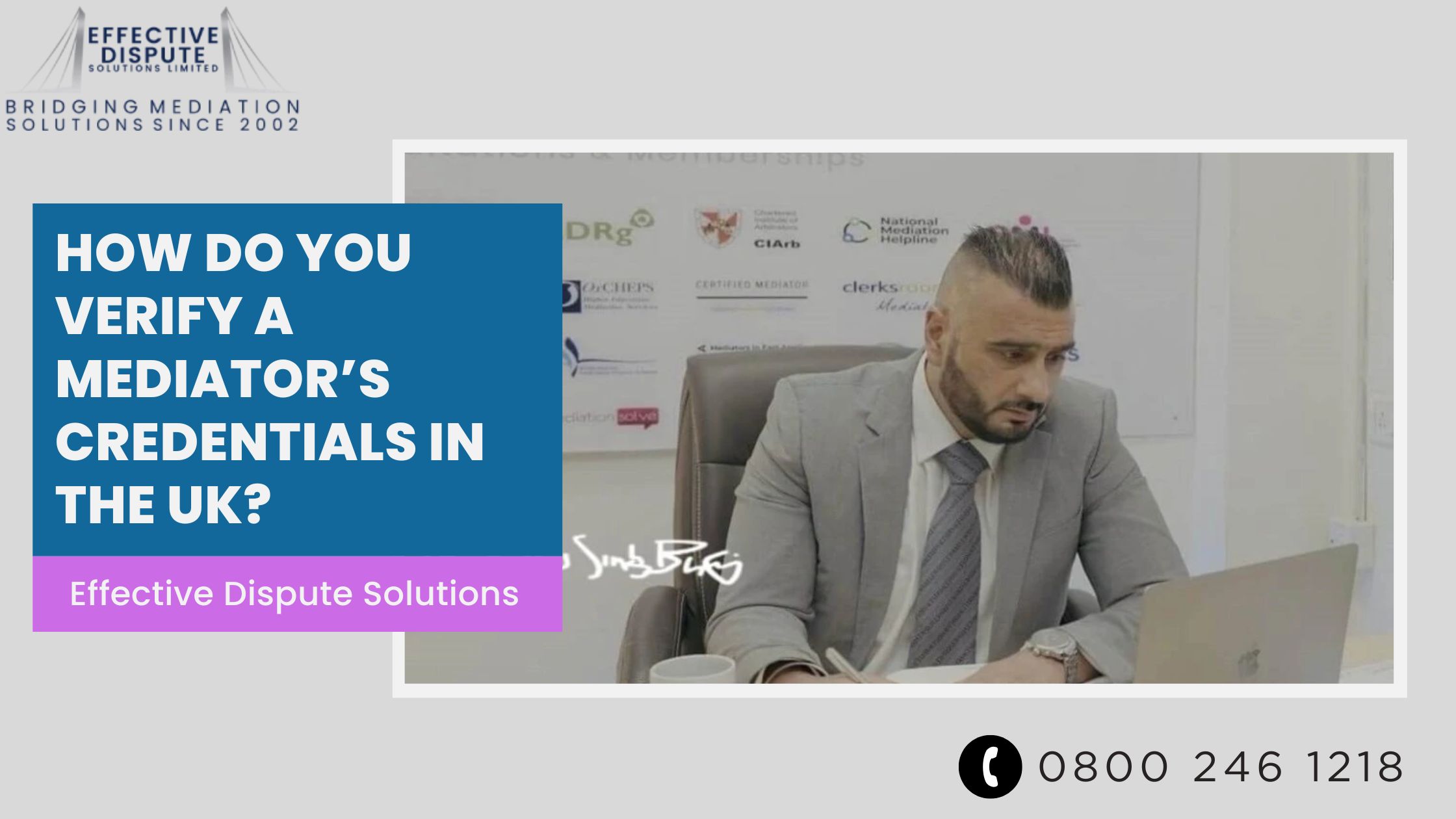Nowadays, for resolving disputes, whether it is commercial, workplace or boundary-related, mediation is more preferred than rushing straight to a court proceeding. Mediation creates a more confidential, usually faster and cost-effective alternative, aimed at preserving relationships instead of the time-consuming litigation. However, with mediation being ever more prevalent in the UK, one central question continually returns: can I check mediator credentials online UK?
It is of utmost importance to verify that the mediator you intend to choose is a qualified, registered expert who possesses the necessary experience person in question practices, ethical standards, and has the appropriate mediation qualifications. . So, here is all you need to know about how to check mediator accreditation in the UK.
Mediator Credentials: What Are They and Why Should You Care?
Mediator credentials are the qualifications, accreditations and memberships held by the mediator that affirm their integrity and professional competence. This includes formal training, registration with an appropriate organisation, and experience as a mediator. Mediation is not a statutory profession in the UK, and so, in reality, anyone can claim to be a mediator.
Who Is A CMC Registered Mediator?
Being a CMC registered mediator is one of the highly regarded confidence signs. Civil Mediation Council (CMC) — a UK-based organisation that promotes and upholds standards in civil & workplace mediation. A registered mediator has:
- Completed a recognised mediation training course.
- Agreed to conform to the CMC Code of Conduct.
- Agreed to continue professional development (CPD).
- Agreed to hold professional indemnity insurance under a vetting process of the CMC.
Being CMC-registered indicates a mediator is serious about their profession and represents established national standards.
How to Verify CMC Registration?
- Go to the CMC website https://civilmediation.org/
- Search the mediator directory, find a mediator via their searchable registry, which is searchable by name, area or specialisation.
- Check for accreditation status, confirm that the mediator is a “Registered Individual Mediator” or part of a “Registered Mediation Provider”.
- Look for profile details. If a mediator claims to be CMC-registered but is not listed, you can contact the CMC directly for clarification. So if you’re asking, “Can I check mediator credentials online UK?“ Yes, you absolutely can, and you should.
Signs of a Qualified Mediator
Here are a few practical indicators of a mediator that can help professionalisation, beyond CMC registration:
1. Recognised Training
The best mediators will have studied formally with a recognised training provider. This typically involves a minimum of 40 hours of training, mock exams, and continuing education.
2. Professional Background
A lot of mediators have a background in working as a solicitor, HR professional or other relevant field. Background in itself is not enough, and you can ignore it completely, but it can be a great place to start, particularly when disputes become more complex, for instance, legal or commercial disputes.
3. Specialisation Areas
Select someone with a relevant specialisation for your type of dispute. The context of the mediation – whether it be a workplace mediation, a civil-commercial dispute, or a boundary dispute can affect process and outcomes, because the mediator will only be able to work in the areas for which they are trained.
4. Experience and Track Record
Find out how long the mediator has been in practice, and if they have dealt with cases similar to yours. Although details of cases are confidential in most jurisdictions, mediators usually offer anonymised descriptions of prior work or general levels of experience.
5. How to Spot Red Flags
However, not every person who calls themselves a mediator is qualified. Red flags:
- No accreditation and/or training is not clearly stated
- Credentials can not be verified
- Will not help you understand their process and/or cost
- Does not exist online or on any professional directory.
What to Ask a Mediator?
Be transparent and do not be shy to ask questions such as :
- Are you a CMC registered mediator?
- What is your mediation training background?
- May I see the evidence of your mediation certificate or qualifications?
- What sorts of disputes do you typically work with?
- Have you purchased professional indemnity insurance?
These questions will help you evaluate not just credentials, but also the way they communicate, which is critical for successful mediation.
Bottom Line
A mediator needs to know how to act and to resolve a matter, so whether it be a workplace conflict, a civil dispute or a boundary problem, getting the credentials of the mediator is part of the process which they must go through to have a successful and mediation.
Effective Dispute Solutions Limited is here to help. Whether you need an experienced, registered mediator in the UK, we offer the same. Our experienced and accredited professionals help you resolve issues quickly, quietly and cost effectively.


